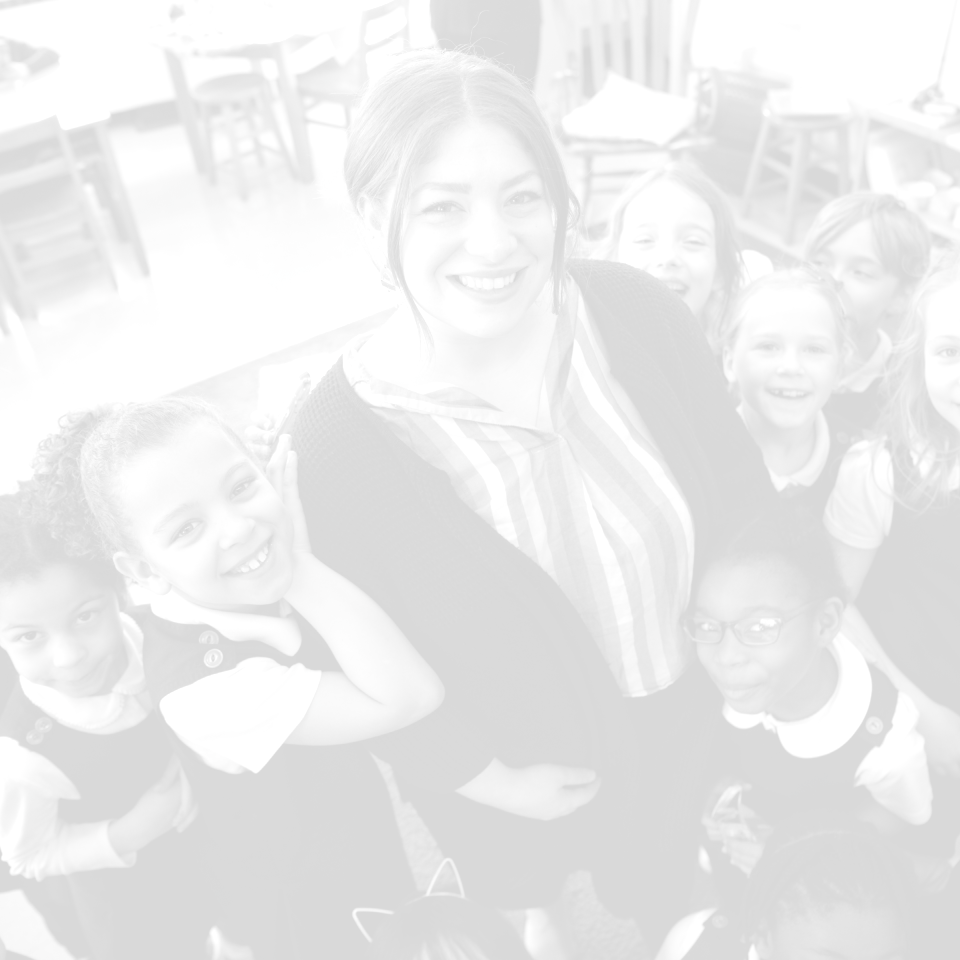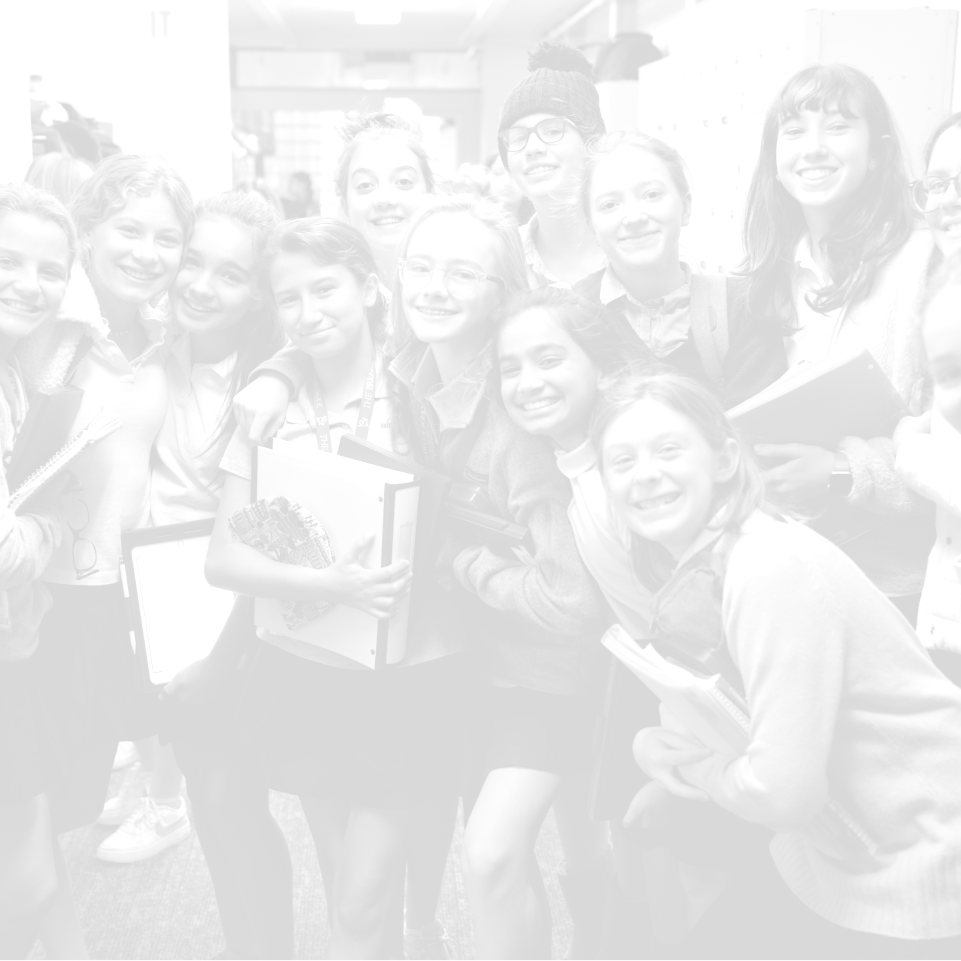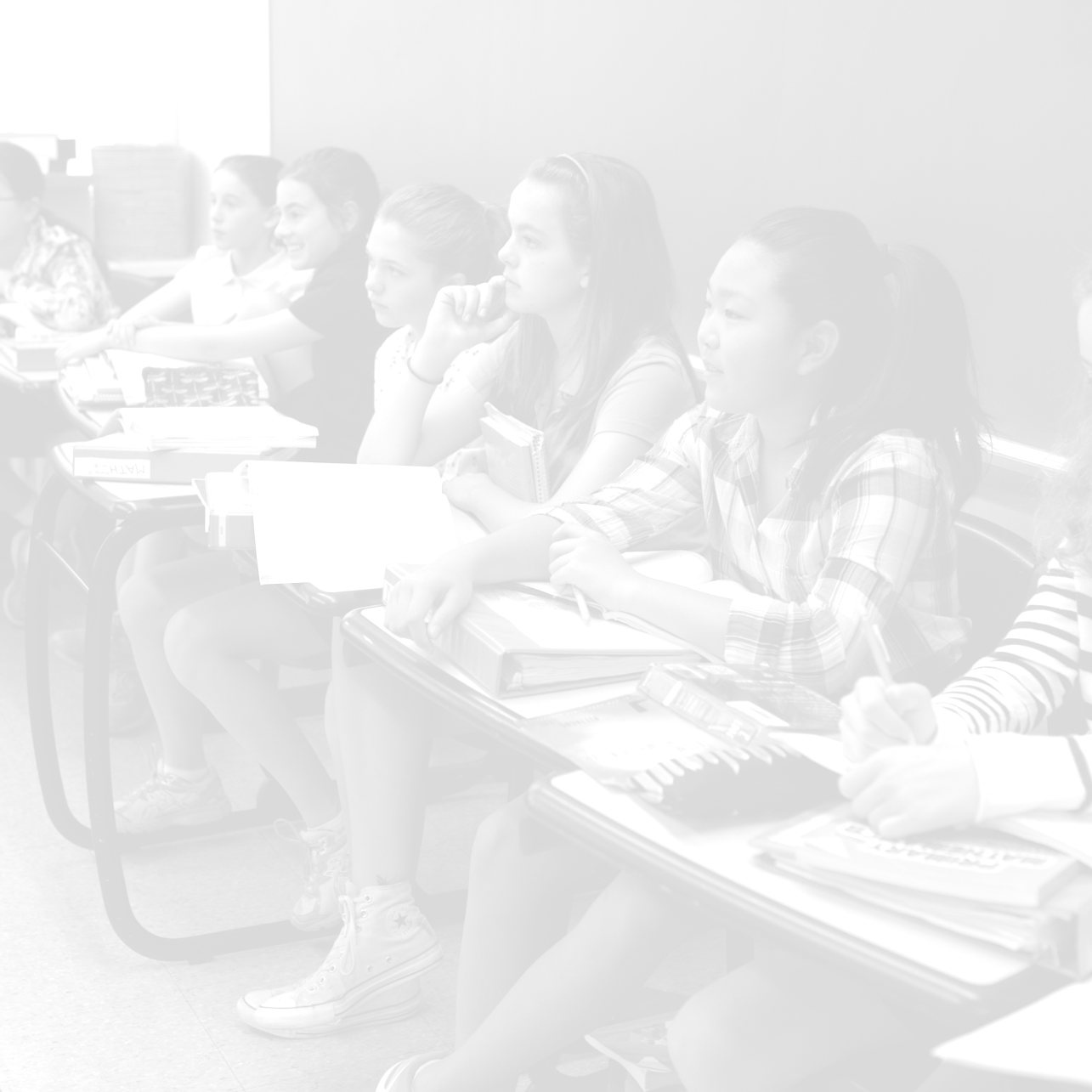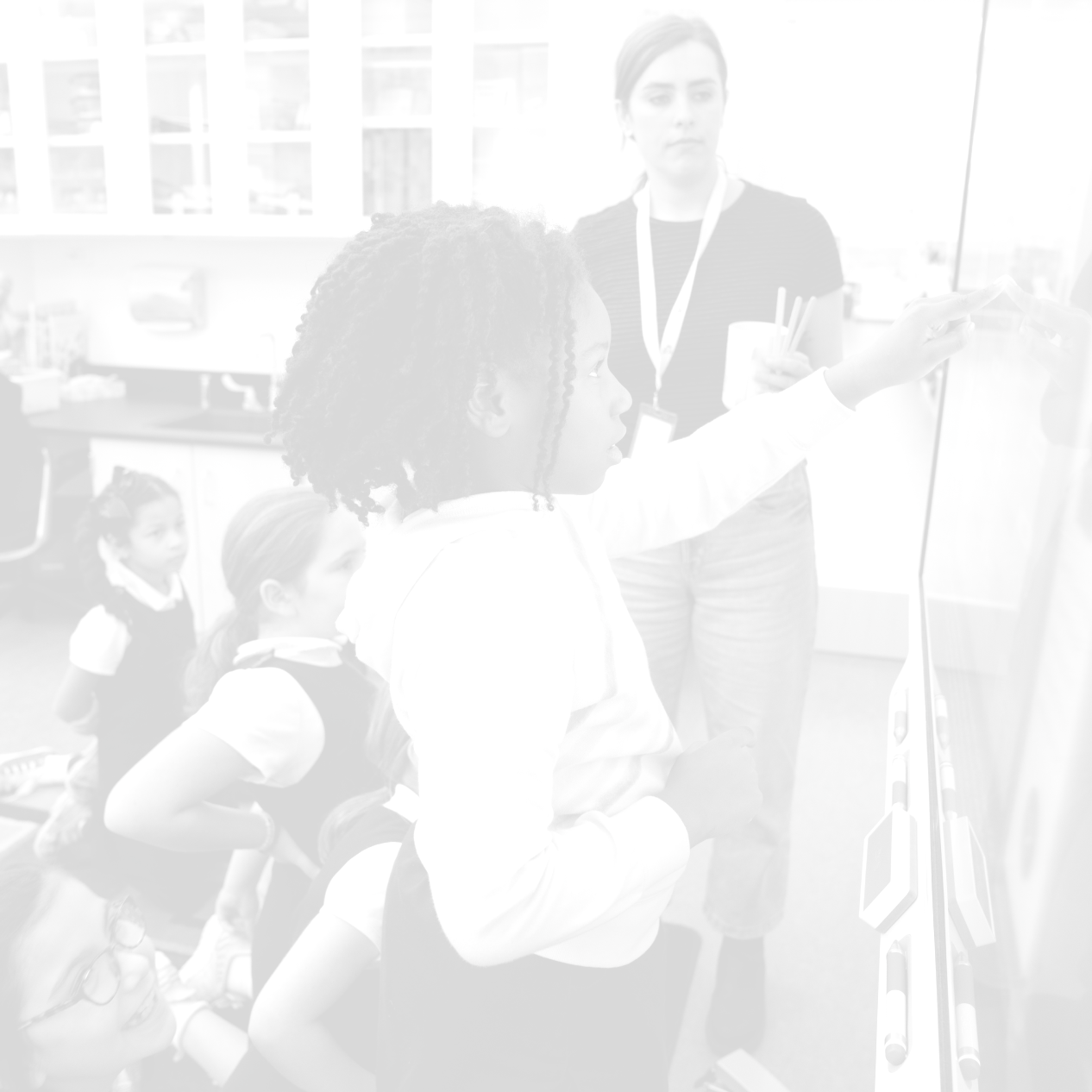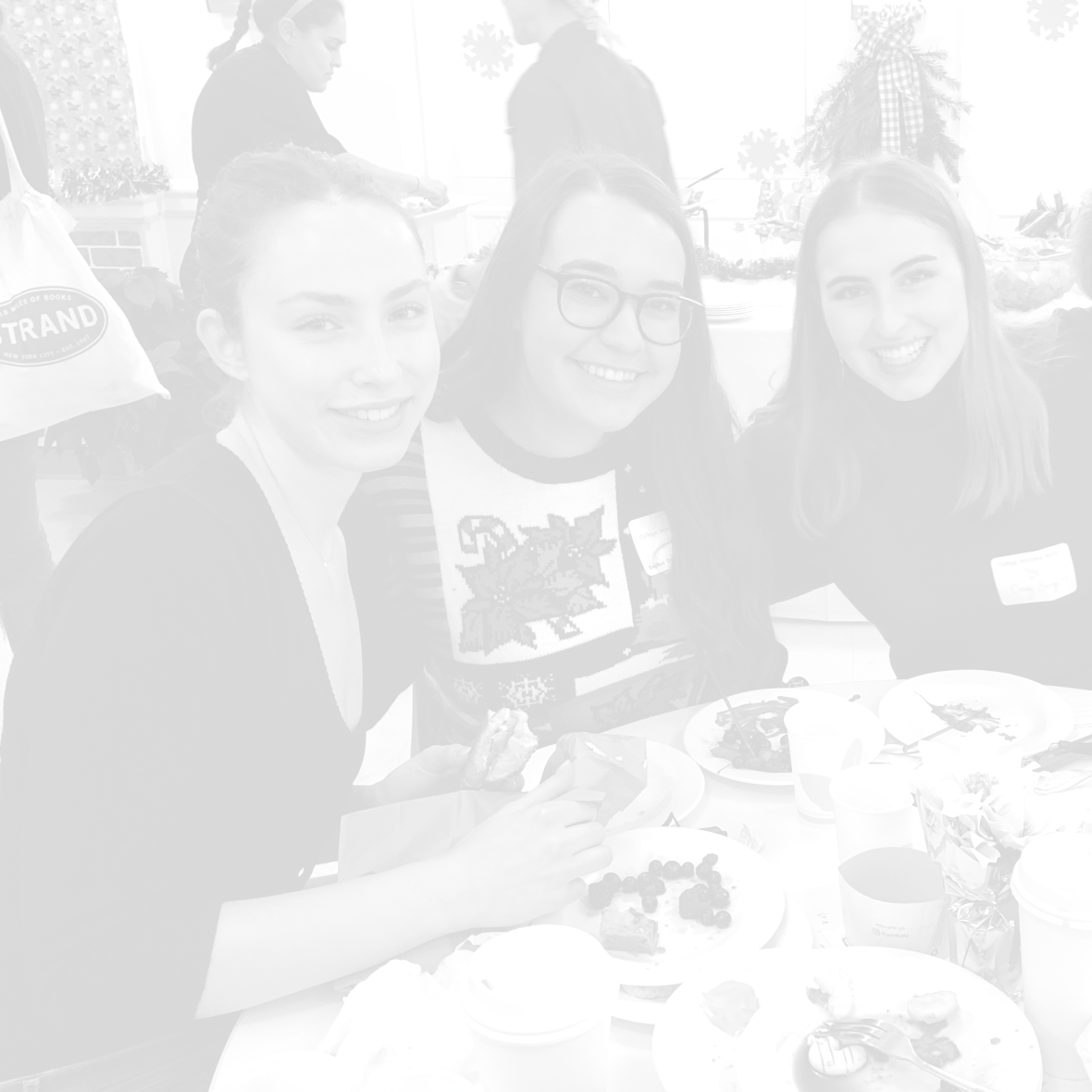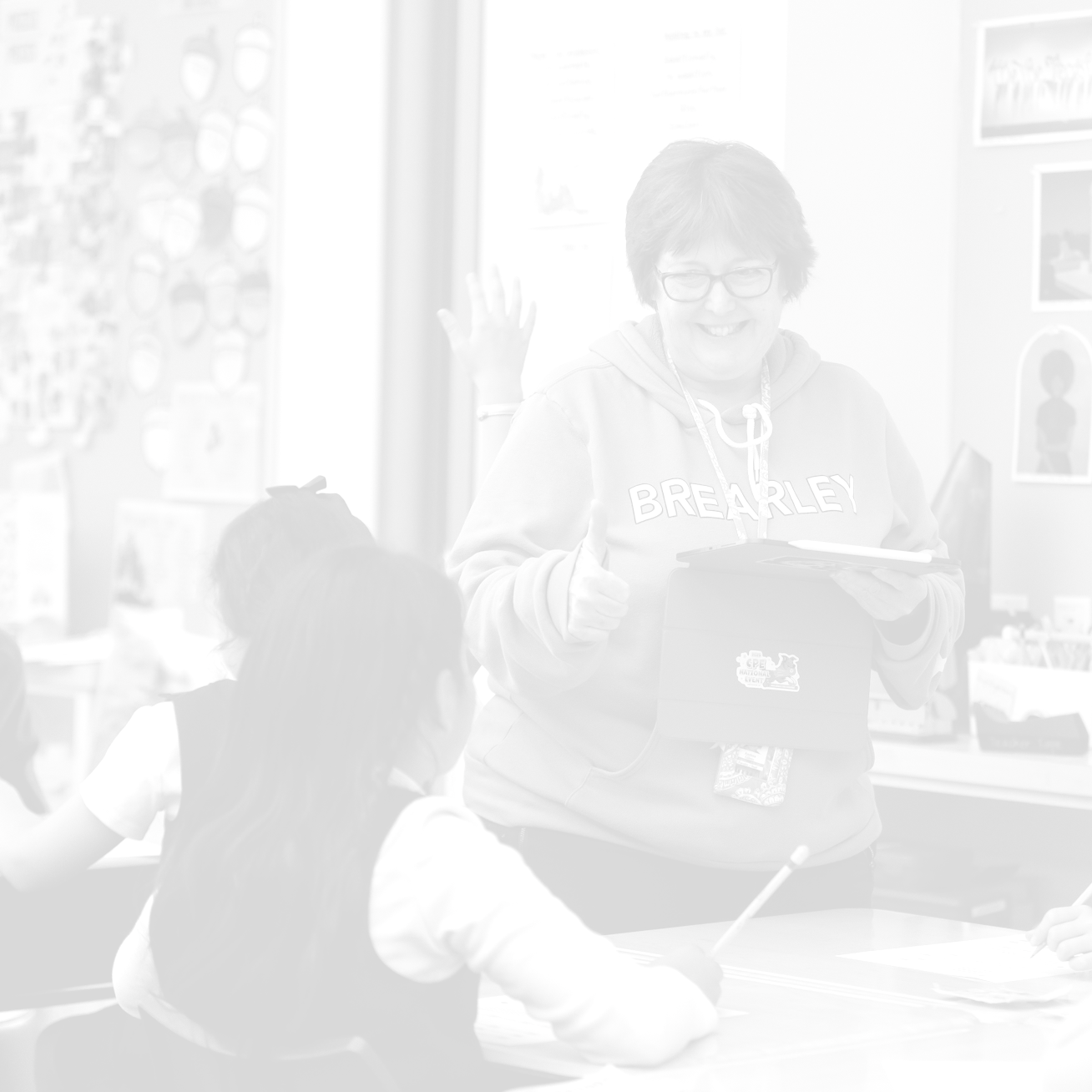Opening Day
On Wednesday Middle and Upper School students, faculty and staff gathered in the 590 Performance Hall for this year's opening assembly. It was the first time all were together for this event since the start of the pandemic. Jane Fried, along with school administrators Tim Brownell, Head of Middle School Student Life, Coy Dailey, Director of Equity and Community Engagement, James Mulkin, Associate Head of School for Academic Life, and Betty Noel-Pierre, Head of Upper School Student Life, and Class XII leaders Vivienne Jones and Grace Schuur, co-heads of Self-Government, and Kayla Denis and Alexandra Durt, co-heads of Brearley Student Diversity Leadership Council, welcomed new and returning members of the School. Ms. Fried exhorted the audience to lean into the challenges of the year ahead and to strengthen our community by caring for one another. Her full remarks follow: Welcome to the new school year!
The opening of school assembly for Middle and Upper School is an annual tradition at Brearley, and this is only the second time that we have held it here for both divisions. The first was in 2019, just days after 590 opened. Now, with advances in science by the medical community, vaccines for Covid enable us to be here together and—slowly but steadily—return to a sense of normalcy in our lives. We are not completely there yet, but being here today signals progress.
It is a thrill to welcome all of our new Middle and Upper School students as well as the new teachers and staff members. I ask them all to stand so we can give them a warm Brearley welcome.
As we begin this year, I want to take us up to 5,000 feet, so to speak, to contemplate how we might live the Brearley experience in a more holistic, honest and mutually supportive way.
This summer, faculty, staff and Upper School student leaders read The Art of Community, by Charles Vogl. As I mentioned in my opening letter, which you all received, Vogl believes that a community’s strength emanates not only from its history and mission—and the talents and contributions of its members—but most importantly from a culture of mutual concern that we hold for one another.
It’s not enough for Vivienne to care about the well-being of Grace, or Kayla, or Alex, or the other members of Class XII. She also must hold concern for the well-being of all students, faculty and staff. That is not to say that as she goes about her day she needs to know all that is going on in everyone’s lives—that would not be advisable or even possible—but as a member of our community, she understands that our strength is rooted in the bonds that we have with one another and that weak connections within the community diminish the stability of the whole.
When I read Mr. Vogl’s book years ago, I came away with a general sense of its applicability in our community. However, over the last couple of years, as we have worked to keep our members safe and in school during the pandemic and also to create a community of belonging, Vogl’s book has offered a framework for how we can attract, orient and form deep relationships with community members who share a common set of values and support our goals. One of these goals is to create a sense of belonging for all community members. That feeling isn’t necessarily ensured by traditional measures of success: grades, leadership positions or popularity within one’s class. Its foundation is more nuanced. A 1995 psychology study found that belongingness is created by “frequent interactions and persistent caring.” This is something we, as a small school with a highly engaged adult and student population, can attain if we center our mutual concern for one another in our formal and informal interactions.
Creating that culture here requires intention and connection. I recently sent you a photo I took of my yard early last Friday morning as I was walking my dog, Balas. The sun was just rising above the eastern mountain range and the light was low enough to illuminate thousands of spider webs glistening with dew in the tall grass. I immediately thought of Charlotte’s Web and the possibility that all of those webs were spun overnight. I had walked the field the evening before and saw no evidence of the webs and wondered why they were suddenly there. Upon closer inspection, I noticed that almost every web had a bright yellow garden spider, also known as writing spiders for the intricate webs they spin, in its center. Peering closer, I noticed something else I’d never seen before—the webs seemed to be connected by delicate, single strands, which you can see if you look closely at the photo. It appeared to be a vast network of webs, each unique but connected by these industrious orb weavers. It was a magical morning surprise and—as in most discoveries in my life since I joined this community—made me think of you, particularly because I have since learned that these webs indeed are spun daily in the final weeks of summer.
You are the weavers of this community and you each are diligently spinning your unique web. It is an effort that thousands have engaged in before you and many more will follow. Your web has different components: family, friends, activities, thrills, disappointments and, yes, surprises. My advice to you today is to make sure in your spinning that you pay particular attention to the beauty and discovery of your academic life. I want to be clear that I’m highlighting this central part of your learning not to urge you to attain the highest grades possible or because at some point you will be a college applicant. Rather, I’m thinking about how you find joy and happiness in this aspect of your daily life. Anyone who visits a class at Brearley can see and feel the excitement, energy and connection among students and with their teachers. Every time I visit a class I am filled with hope.
The academic program at Brearley has been thoughtfully developed in its scope and sequence by generations of faculty. Each summer and even during the year, teachers make adjustments to the program based on the needs of students. This course of study will serve you throughout your life—in school, as you choose a career, and as you find purpose and fulfillment in your adult life. Our alumnae have shared time and again how their academic experience at Brearley has inspired the joy of lifelong learning and helped them take on new disciplines and collaborate on big questions in such areas as the arts, sciences, environment, social justice, economics and ethics. They speak poignantly about how they aren’t paralyzed by seemingly impossible challenges or the unknown because they carry their Brearley education with them wherever they go—be it in an internship, during office hours with a college professor, on a trip to a museum, in a moment of inflection in their chosen profession, or in a quiet moment to create art.
Yes, we want you to be successful students at Brearley and we, all the adults in this community, hope you will lean into your classes with the dedication, originality and earnestness of an orb weaver to create something strong and beautiful that suits your needs, nurtures your intellectual and personal growth, and connects you with others—your peers, your teachers, and the characters, historical figures and concepts you’re introduced to in your classes.
This is a rare education. Relish how it expands your mind, puts your hands to work and increases the capacity of your heart. It will serve you now and into the future. It will be a source of your strength and stay throughout your life. Enjoy!
